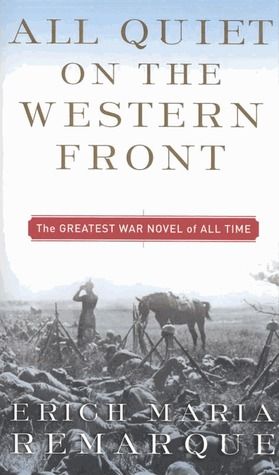Paul Baumer and his classmates enlist in the war effort at the beginning of World War I, as they move through their training and to their new units, we begin to see the dynamics that their friendships will play in war.
Youth. These boys are not quite teens anymore, but not quite adults. They are stuck in the middle of growing up, but some of them will not get the chance. As the front rages, the small pleasures that they are afforded bring a comfort they never thought possible. Having more food for a change, cigarettes, a decent latrine, all of these seem like small items to the outside person. But for these soldiers, they are pieces of heaven, small doses of happiness meted out when they needed it the most. Of course, as the time moves forward, they begin to learn the bitterness of war, and the frailty in which life is held. For some of the men, this is a break in their normal lives. They have jobs, families, memories and something to look forward to when the war is over. But for the youth, the new soldier, they have no holds. Nothing to bind them to this earth. They learn all to quickly about the savagery, not the glory. They see their friends and comrades fall, and they wonder about the end. Will it be worth it, and will the lives lost mean something.
Baumer sits with one of their friends, a young man that they grew up with. As his life slowly fades, Baumer continues to sit with him, talking about anything that might bring his friend around, even when he knows its futile. But the hope of youth is what keeps them going. But how far will it get them?
This week we are reading Chapters 1-4
Questions:
- The naive nature of youth is something that plays predominantly in the beginning. Why?
- They seem to have a collective emptiness of future goals. Why do they not talk about these?












